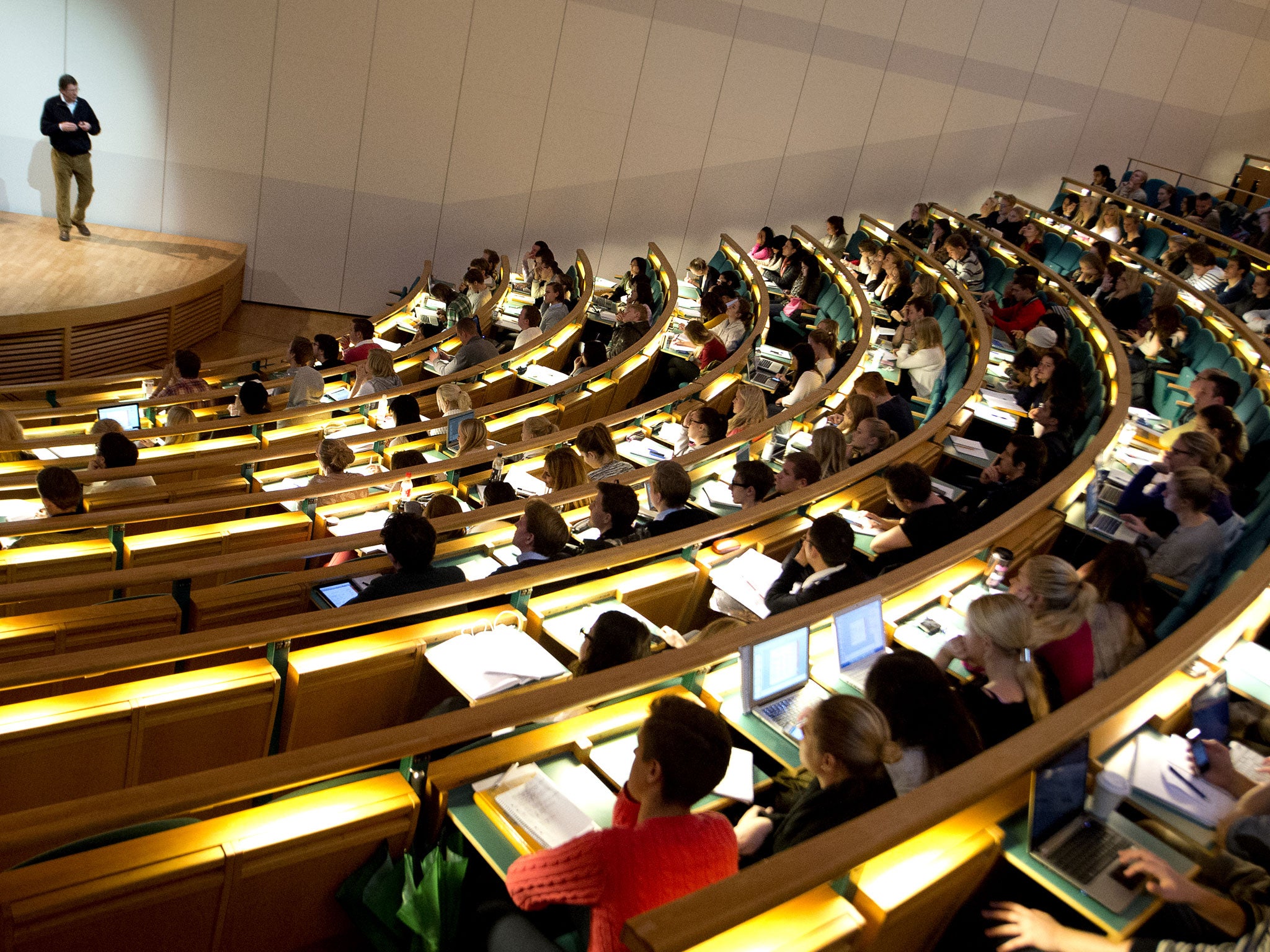Let study be its own reward: How to make the most of your lectures
It may be hard to remember sometimes, but technically you are at university to learn...

Lecture theatres are a place to soak up all the knowledge. Many students find the opportunity to learn new skills, techniques and ideas from very learned people invigorating, but just as many find it boring, while also forgetting how to whisper while talking.
The usual cost of a course for a university student - as of 2012 - stands at £9,000 per academic year. A recently conducted poll revealed that the average student is scheduled for close to 14 hours of teacher-student based learning per week. With 30 academic weeks in a year (not including exam periods), that means that the average cost of a one-hour lecture period is equal to £21.23.
Although it varies on your location, the UK national average cost of a pint of lager in a pub is around £3.03. It is therefore mathematically correct to say that, for the price of a lecture, you’re paying the cost of seven pints - which means a lot to a hard-working student. Taking these figures into account, it is difficult to understand why people still attend lectures just to ignore the speaker.
Isn't an education worth more to you than that? Here's what you can do to maximise your learning.
Sit at the front
Chris Hakala, a psychology professor, tells us that students who sit closer to the front of the classroom are more likely to be able to develop a better relationship with the professor when compared with those students who sit at the back.
The pupils with a better student-teacher relationship tend to engage more with the lecture and therefore are more likely to get better grades. Students who sit further back are not as engaged with the lecturer and tend to believe that they can get away with playing on their phones and talking loudly.
Leave the distracting materials at home
We’ve all been to lectures that we find difficult and where we will try anything to distract ourselves, whether it’s a novel or the latest game release. With students frequently using laptops and iPads to write their notes it has become easier for them to go unnoticed playing Fifa in their seats.
In The Psychology Of Learning Environments, Dr. Graetz tells us that once one student opens up a crossword puzzle on a laptop or in the newspaper, the student next to them is tempted to play and before you know it, the whole room is doing crossword puzzles. Students are obviously unlikely to leave their phones at home but make sure you turn it on to silent as once you get one text message, you’ll be distracted for the rest of the lecture.
Don’t sit with your friends
It might seem pretty boring at first but groups of friends are more likely to talk because they have similar interests and often have shared the same recent experiences. Just remember that every lecture that you don’t listen to is costing you over £20 and if you want to make that money go further then, just for an hour, ditch your friends and listen to what the lecturer is saying. Friends will be with you for the rest of your life but you don’t want to have to pay another £9,000 because you failed all of your exams.
Save it for the weekend
Lots of students tend to think that when they come in at 5am, unable to walk and struggling to talk that they’ll be fine for any lecture that they have after 9am. Unfortunately the human body doesn’t work that way and, if you’re not already asleep on your desk once the hangover has kicked in, you won’t do very well at soaking up the information from the lecture.
Martin Hagger, the reader in social and health Psychology at Curtin University in Australia, says this is because "alcohol affects the way signals are received by the brain, making it hard to concentrate on routine tasks". Since hangovers are associated with increased stress levels you will probably find that the people who talk throughout the lectures unbelievably manage to annoy you more.
So if you're one of those strange ones who actually wants a decent degree, just find yourself a seat at the front of the lecture and sit comfortably in the knowledge that after everyone else in the room fails because they weren’t listening when the date of the deadline for their dissertation was announced, you'll be throwing your mortar board up in the air and going on to better things.
Join our commenting forum
Join thought-provoking conversations, follow other Independent readers and see their replies
Comments
Bookmark popover
Removed from bookmarks